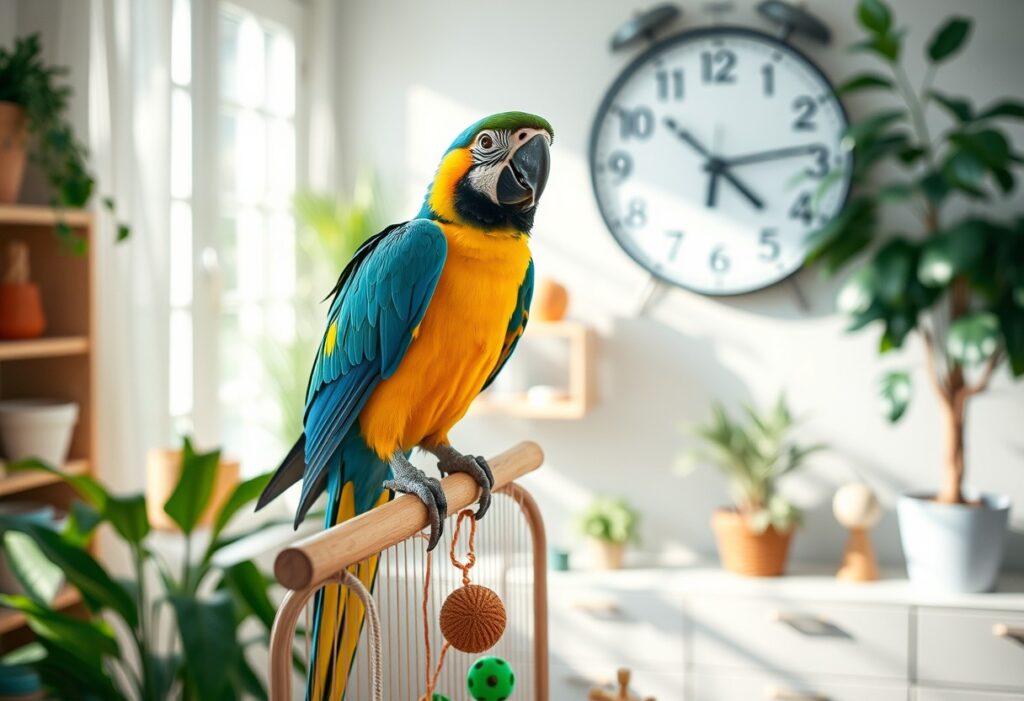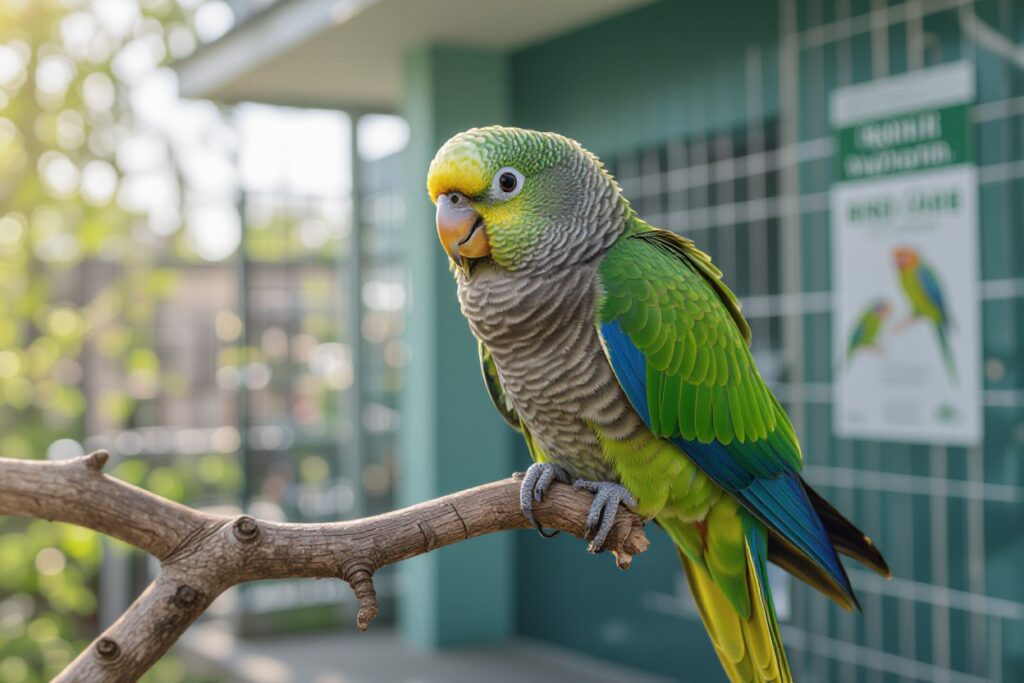There’s a wealth of advantages to establishing a structured routine for your birds, as it greatly enhances their physical and mental well-being. By maintaining consistency in feeding, social interaction, and playtime, you can significantly reduce stress and anxiety, leading to a more happy and healthy pet. A predictable environment encourages your feathered friends to thrive, allowing you to observe their natural behaviors and strengthen your bond. Implementing a routine not only promotes their emotional stability but also helps in preventing potential behavioral issues.
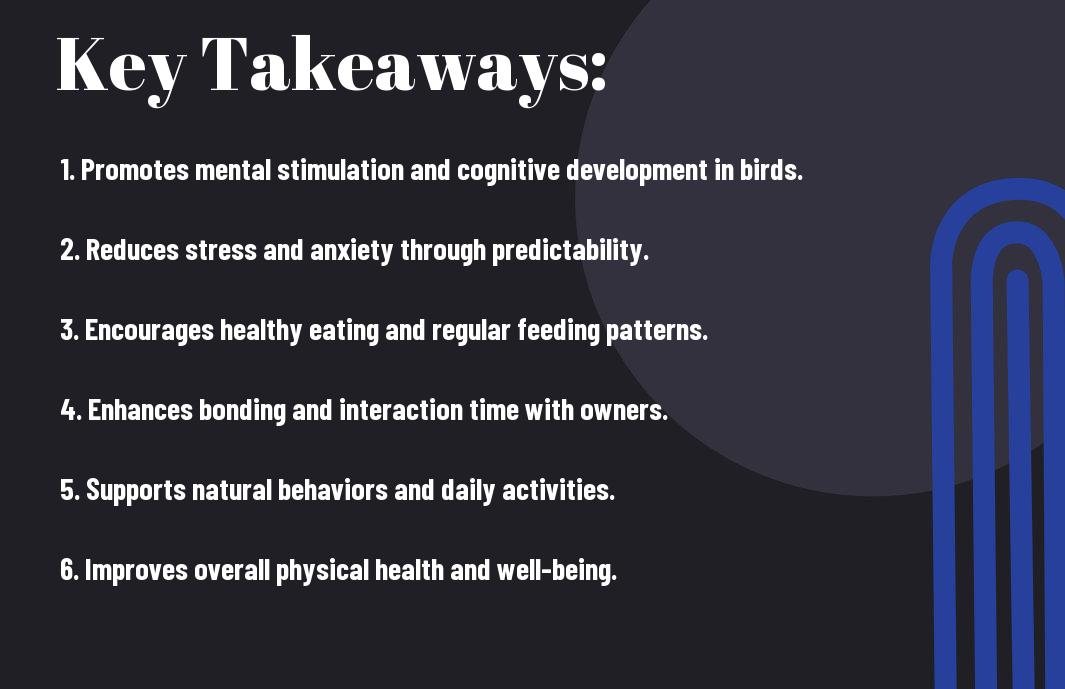
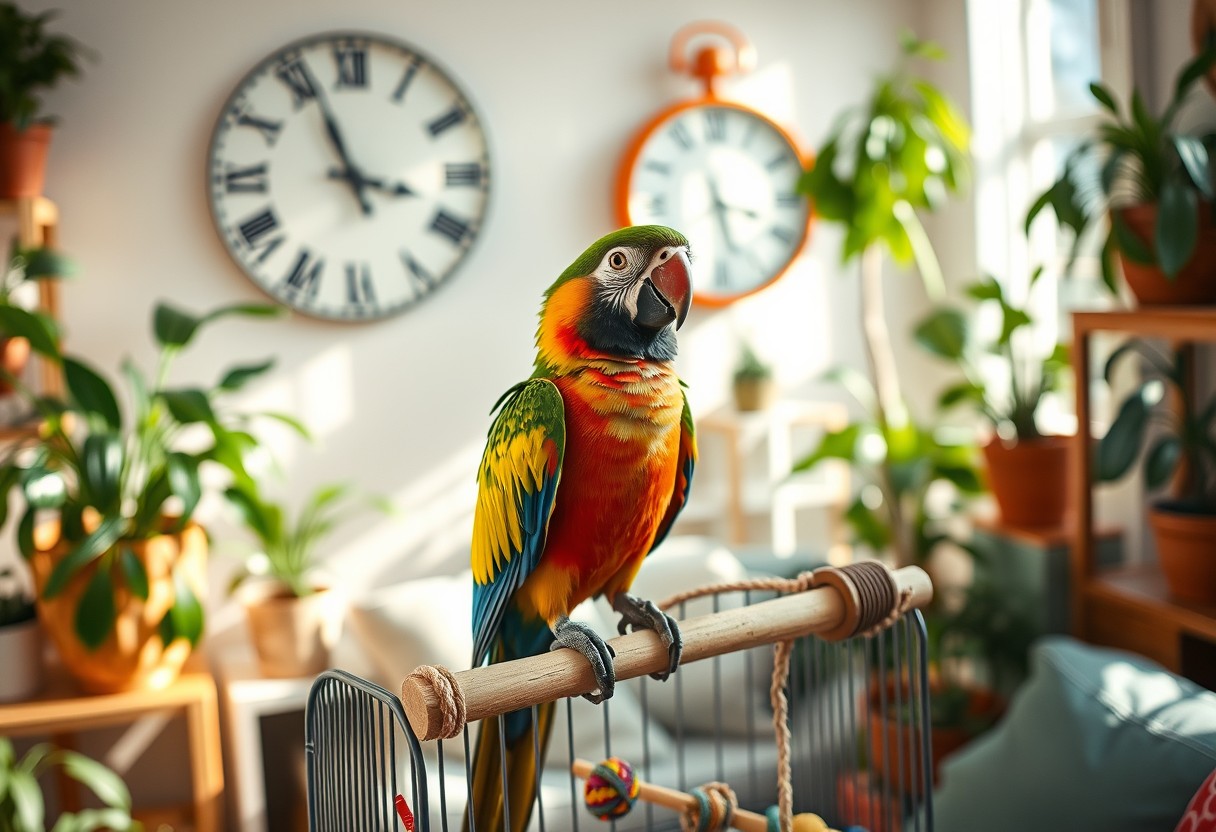
Understanding Bird Behavior
For bird owners, understanding your feathered friend’s behavior is crucial in providing them with a comfortable and fulfilling environment. Birds are creatures of habit, and their behaviors are significantly influenced by their natural instincts and daily rhythms. By recognizing these patterns, you can create a structured routine that caters to their needs, ultimately promoting a happier and healthier life for your avian companion.
Natural Instincts and Daily Rhythms
An appreciation for your bird’s natural instincts will greatly enhance your ability to connect with them. Birds are inherently designed to follow daily cycles influenced by factors such as light and food availability. These cycles play a significant role in their behavior, dictating when they are most alert, active, and socially engaged. By observing your bird’s natural wake-sleep patterns and feeding habits, you can replicate these rhythms in your daily routines to provide consistency and comfort.
By aligning your schedule with your bird’s natural rhythms, you can reduce potential stress and anxiety your pet may experience. For instance, providing meals and social interaction at the same time every day can foster a sense of security, allowing your bird to thrive in a predictable environment. Understanding these cycles empowers you to better care for your pet, acknowledging their need for both activity and rest.
The Role of Routine in Psychological Well-being
An established routine not only aids in meeting your bird’s physical needs but also plays a vital role in their psychological well-being. In the wild, birds engage in various activities—such as foraging, socializing, and resting—in a rhythmic pattern that contributes to their mental health. When you implement a routine for your pet, it mimics the natural order of their life, creating a stable and enriching environment.
Routine helps reduce stress levels in birds, as they feel more secure knowing what to expect each day. When you incorporate consistent playtime, training sessions, and opportunities for social interaction, it promotes mental stimulation and prevents boredom-related behaviors like feather plucking or excessive screaming. The stability provided by a well-structured routine allows your bird to thrive emotionally, leading to a more content and engaging companionship.
Routine activities become a source of predictability and comfort for your bird, fostering trust and deepening your bond. By ensuring that your pet has set times for play, exercise, and rest, you create a balanced lifestyle that caters to their innate needs. In effect, a structured routine can safeguard against the development of detrimental behaviors, helping your bird lead a happier and healthier life.
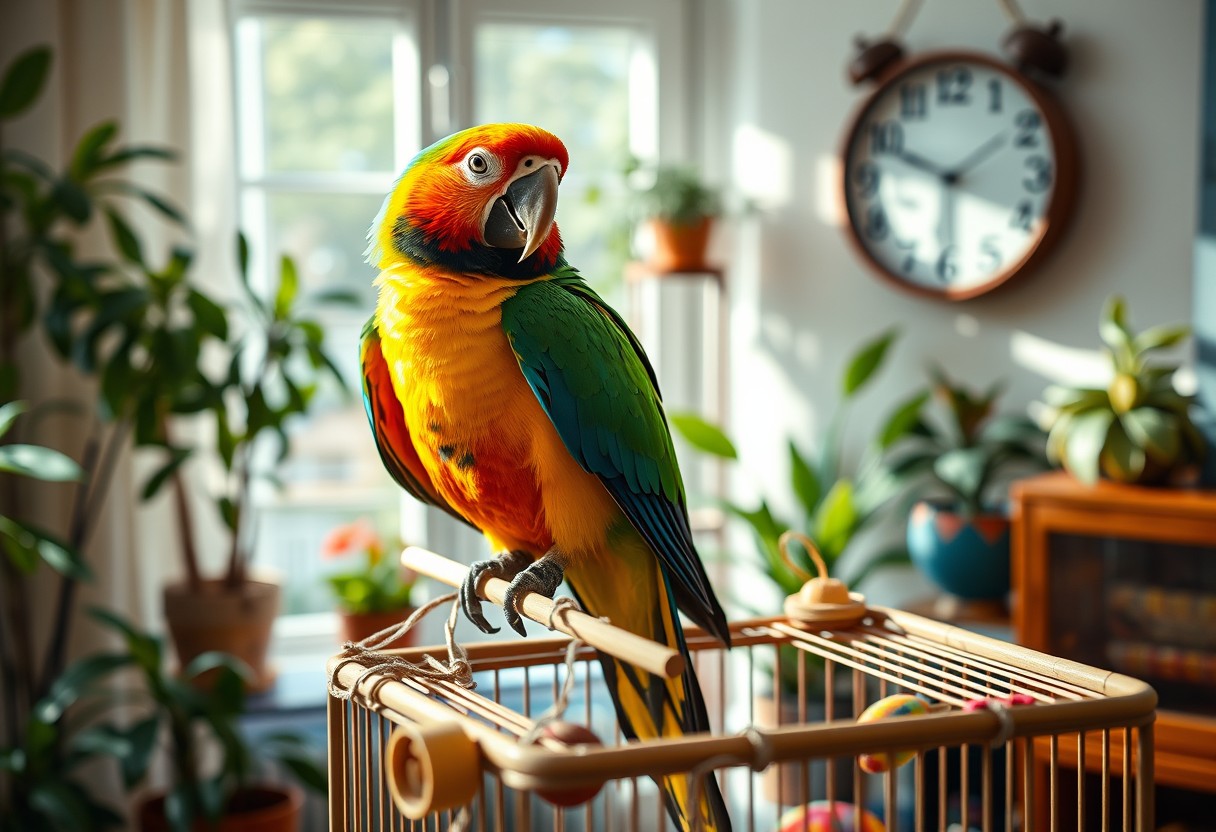
Benefits of a Structured Routine
The benefits of a structured routine for your birds are numerous and transformative. A predictable schedule aids in creating a sense of security, which is crucial for their overall well-being. When you establish and maintain a consistent routine, your feathered companions are more likely to thrive, exhibiting reduced signs of stress while displaying playful and sociable behaviors.
Reducing Stress and Anxiety
On a psychological level, exposure to unpredictability can lead to heightened levels of stress and anxiety in birds. By implementing a structured routine, you can alleviate these feelings significantly. Birds are creatures of habit, and when they know what to expect, it fosters a feeling of safety. Regular feeding times, bathing schedules, and playtime can dramatically reduce anxiety levels, allowing your feathered friends to relax and engage more freely with their environment.
Providing a structured routine can also prevent behavioral issues that often arise from stress. When your birds experience less anxiety, they are less likely to develop habits such as excessive vocalization or feather plucking, which can be detrimental to their overall well-being. Establishing consistency in their daily activities ensures their mental state remains stable, making them happier and healthier companions.
Enhancing Social Interactions
Routine not only helps in easing anxiety but also plays a crucial role in enhancing social interactions. When birds are accustomed to a consistent schedule, they develop stronger relationships both with you and with other birds. This stability allows for predictable socialization opportunities, where you can incorporate bonding activities, whether through training sessions or shared playtime, improving your connection with your avian friend.
The predictability of routine allows you to create valuable bonding moments that further strengthen the relationship between you and your bird. Engaging in social interactions during specific times fosters an environment in which your bird feels valued and secure. As a result, they may become more confident in their interactions, leading to a more fulfilling companionship.
Promoting Physical Health
For your feathered friends, a structured routine is vital in promoting physical health. Regular meal times and exercise routines help maintain a balanced diet and muscle tone, which are crucial for their overall vitality. Consistency in feeding habits minimizes the risk of obesity and malnutrition, ensuring your bird receives the nutrients it needs to thrive.
Additionally, a predictable schedule allows you to implement regular health checks and grooming sessions. This proactive approach to their care helps prevent potential health issues before they arise, keeping your bird in top condition. Physical activity is also crucial; incorporating scheduled playtime encourages your feathered companion to exercise, promoting a healthy lifestyle that will lead to heightened longevity.
Stimulating Mental Engagement
Structured routines incorporate opportunities for mental engagement, which is crucial for the cognitive health of your birds. When you allocate time for interactive play, training sessions, and new experiences, you can keep their minds sharp and stimulated. Consistency helps them anticipate these engaging activities, leading to a higher level of participation and enthusiasm.
Another benefit of a structured routine is that it encourages exploration and curiosity. When your bird knows that engaging activities are scheduled, they become more eager to participate, which can lead to greater happiness and enrichment in their lives. With mental engagement being foundational to a bird’s overall well-being, a well-organized daily routine can greatly contribute to their mental stimulation and satisfaction.
Implementing a Routine
Many bird owners may find that establishing a structured routine not only benefits their feathered companions but also enhances their own experience as caretakers. A good routine helps in creating a sense of security and predictability, allowing your bird to thrive in a familiar environment. As you begin to implement this routine, it’s crucial to focus on the key elements that make it effective and beneficial for your bird.
Key Elements of an Effective Routine
On the path to a successful routine, consistency is key. Birds thrive on habits, so establishing a regular feeding schedule, playtime, and rest periods will help them feel secure. You may want to set aside specific times each day for feeding, training, and interaction, as this predictability can reduce stress and anxiety in your pet. Additionally, ensure that these routines align with your bird’s natural instincts and behaviors, such as providing opportunities for foraging and socializing.
On the other hand, stimulation is equally vital. Incorporate various activities into your bird’s daily schedule to keep their environment enriching and engaging. This can include introducing new toys, rotating perches, and engaging them in interactive play. By blending routine with exploration, you can create an environment that nurtures both physical and mental well-being.
Customizing Routines for Different Species
On your journey to implementing a routine, it’s crucial to recognize that different bird species have unique needs and personalities. What works for a parakeet may not suit a macaw or cockatiel. For example, larger parrots may require more social interaction and mental stimulation due to their higher intelligence, while smaller birds may thrive in simpler routines. Understanding the specific needs of your bird will allow you to curate a tailored plan that supports their well-being.
Understanding the various characteristics of your bird species will aid in customizing their routine. Some birds, like cockatiels, are known for their sociability and may benefit from having daily interaction and playtime with their owners. In contrast, some more independent birds may require less human interaction but still need environmental enrichment and stimulation to remain happy and fulfilled. Tailoring the routine to meet these specific needs while considering your bird’s natural behaviors will yield the best results.
Tips for Consistency and Flexibility
Implementing a routine requires a delicate balance of consistency and flexibility. While it’s crucial to stick to a daily schedule to instill a sense of security in your bird, unexpected disruptions can occur. To maintain the advantages of a routine while accommodating life’s unpredictability, consider the following tips:
- Establish a daily schedule that includes feeding times, playtime, and training sessions.
- Be prepared to modify the routine as necessary, ensuring you provide enrichment and interaction consistently.
- Keep a log of your bird’s behaviors to identify any changes or preferences in their routine.
This method will help ensure your bird remains comfortable and engaged, regardless of any disruptions.
Tips for remaining consistent while also allowing for flexibility in your routine include regularly assessing and adjusting your schedule as needed. Perhaps your bird seems uninterested in morning playtime on certain days—don’t hesitate to shift that part of the routine to a different time. Similarly, continually introduce new activities to avoid monotony and maintain your bird’s interest in their routine. This adaptability can truly make a difference in your bird’s overall happiness.
- Stay vigilant for signs of stress or boredom in your bird to ensure your routine meets their needs.
- Remain open to changing activities and tasks as your bird grows or its preferences evolve.
- Engage consistently with your bird, making time in each day for interaction and caring.
This will not only contribute to a healthier and happier bird but also strengthen your bond with them.
Final Words
Taking this into account, establishing a structured routine for your birds can yield a multitude of benefits that enhance their overall well-being. A consistent schedule helps in reducing stress, providing a sense of security as they come to understand when to anticipate feeding, playtime, and rest. The predictability of a daily routine also encourages natural behaviors, which fosters a healthier mental state and can lead to happier, more content birds. By incorporating regular training sessions and interactive play into your routine, you can also build a stronger bond with your feathered friends, facilitating their social development and making them more adaptable within their environment.
Moreover, a structured routine not only benefits your birds but also aids you in practicing better management of their care. From ensuring all their physical and emotional needs are met to simplifying the tasks involved in their upkeep, a well-planned schedule enables you to be more effective and attentive as a pet owner. By prioritizing routine and consistency, you empower your birds to thrive, while creating a fulfilling and enriching life for both you and them. Invest the time to establish a tailored routine, and you’ll likely witness a remarkable transformation in your feathered companions.
FAQ
Q: What are the key benefits of establishing a structured routine for my bird?
A: Establishing a structured routine for your bird has numerous benefits, including providing a sense of security and stability. Birds thrive when they know what to expect in their daily activities, including feeding times, playtime, and rest periods. This predictability reduces stress and anxiety, leading to improved overall health and well-being. Additionally, a routine can help with behavioral issues by encouraging positive habits and ensuring that your bird has ample opportunities for physical and mental stimulation.
Q: How does a structured routine contribute to my bird’s mental stimulation?
A: A structured routine can enhance your bird’s mental stimulation by incorporating various activities at specific times of the day. For example, scheduled play sessions can include different toys and games to keep your bird engaged and prevent boredom. Additionally, offering training sessions as part of the routine can stimulate your bird’s mind and encourage learning new tricks or behaviors. Incorporating foraging opportunities into the daily schedule also encourages natural behaviors and keeps your bird mentally active and satisfied.
Q: Can a structured routine help with my bird’s dietary habits?
A: Yes, a structured routine can significantly improve your bird’s dietary habits. By setting consistent mealtimes, your bird can better anticipate when food will be available, which may result in a healthier feeding pattern. Providing a variety of foods and introducing them into the routine in a systematic way can encourage your bird to try new items and maintain a balanced diet. Furthermore, a regular schedule can help monitor food intake, making it easier to identify any changes in appetite or preferences that may require attention.
